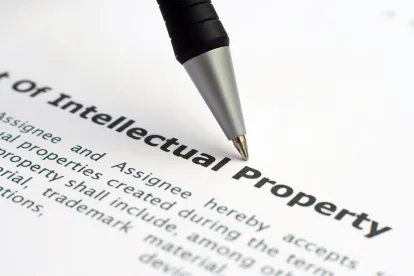As an extension of an effort spearheaded by Senator Josh Hawley (R-Missouri) last year, the Copyright Clause Restoration Act of 2023 (H.R.576) was recently introduced in the U.S. House of Representatives by U.S. Rep. Greg Steube (R-Florida). The text of HR 576 can be found here.
Continuing an effort to reduce the duration of copyright rights, the current bill is essentially a mirror of one proposed last year by Rep. Steube (H.R. 8250) and Senator Josh Hawley (S.4178 - Copyright Clause Restoration Act of 2022). The current House bill, like last year’s, proposes to drastically change the existing copyright term set by the Copyright Act of 1976 (as amended), by reverting to the term originally established by the Copyright Act of 1909. Under the proposed bill, the new copyright term would be reduced to 28 years, with the option for an additional 28-year extension. After the maximum 56-year term expires, the work would enter the public domain. This is in stark contrast to the current copyright term of either 70 years from the author's death, or the earlier of 120 years after the work’s creation or 95 years after its publication for "works for hire” as set in 1998 by the Sonny Bono Copyright Extension Act of 1998, amending the Copyright Act of 1976.
While the commentary on the need to reduce the copyright term has been focused on the alleged unequal benefits afforded to The Walt Disney Company – the Sonny Bono Copyright Extension Act of 1998 is colloquially or derisively known as the "Mickey Mouse Protection Act" – it is important to remember the benefits afforded by the current copyright term apply equally to every copyright owner or creator, not just large corporations. While the Walt Disney Company was certainly a strong lobby for the Sonny Bono Copyright Extension Act, and has definitely benefitted from the copyright term extension, many others expressed a strong interest. Mary Bono (Sonny Bono's widow and Congressional successor), and the estate of George Gershwin were strong supporters, along with Time Warner, Universal, Viacom, and the major professional sports leagues (NFL, NBA, NHL, and MLB). To say that Disney is the only party that benefits from a longer copyright term ignores the wider benefits currently enjoyed by any content creator or owner, large and small alike.
The proposed reduction of the copyright term has potentially negative consequences: Reducing the copyright term based on Disney's political stances may violate copyright creators’ or owners’ First Amendment rights against viewpoint-based discrimination and the Fifth Amendment guarantee of due process. In addition, the current bill would very likely put the United States in conflict with the terms of the Berne Convention. Implemented by Congress in 1998, the Berne Convention is an international treaty intended to convey a minimum set of standard legal principles and protections for literary works and currently requires a minimum copyright protection term of the author’s life plus 50 years.
While interesting and certainly newsworthy, it is likely the current effort to reduce the copyright duration will face the same fate as last year - lots of talk but little action. However, this current movement does highlight a shift in sentiment regarding works entering the public domain and the lack of appetite to enact further copyright term extensions. Essentially, all good things must come to an end, and in the case of Disney’s earliest version of Mickey, as he appears in “Steamboat Willie” in the 1928 animated short, will whistle his way into the public domain in 2024. Yet copyright owners need not despair entirely – in some cases content owners may avail themselves of other intellectual property protections, like trademarks, to protect their famous works and characters.
As a final takeaway, the Copyright Act affords content creators and owners a wide variety of benefits under the law, and we strongly recommend evaluating whether it would be appropriate and beneficial to take advantage, including registering those rights with the U.S. Copyright Office. Registration can greatly enhance an owner's ability to prove ownership of a work, and to protect against infringement, both within the United States and abroad as part of the Berne Convention.




 />i
/>i

